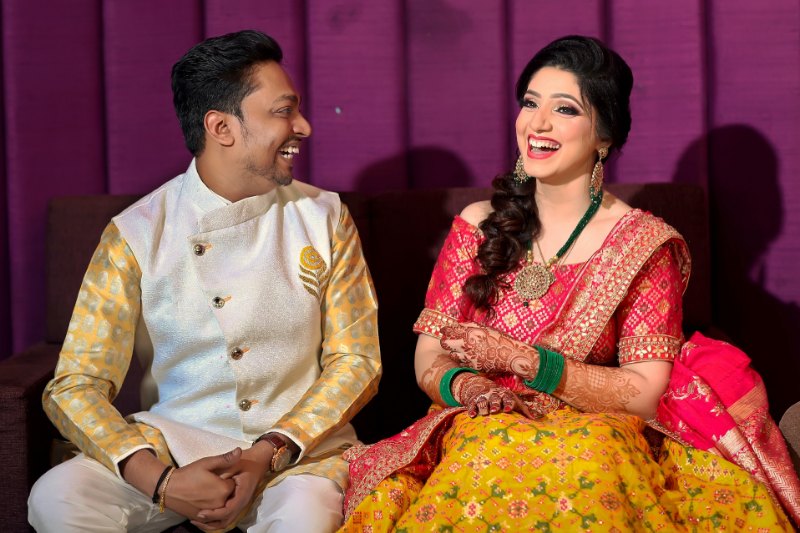
The tradition of matchmaking in India dates back centuries, with its origins rooted in the belief that marriage is not just a union of two individuals, but a merging of families and communities. In ancient times, matchmakers, known as "pandits" or "purohits," were responsible for analyzing horoscopes and astrological compatibility to ensure a harmonious and prosperous marital alliance. These matchmakers considered factors like caste, religion, social status, and economic compatibility.
While Indian marriages are renowned for their rich cultural tapestry, intricate rituals, and profound significance within the society. At the heart of these unions often lies the figure of a matchmaker, a pivotal character who orchestrates the meeting of two individuals destined to embark on a lifelong journey together. This blog explores the multifaceted role of matchmakers in Indian marriages.
Professional matchmakers play a crucial role in the matchmaking process in India. With expertise in understanding cultural nuances and individual preferences, matchmakers bridge the gap between tradition and contemporary expectations. They act as intermediaries, using their skills to assess compatibility, family background, and personal values to help individuals find their ideal life partners.
Today, the role demands a more nuanced skill set. Modern matchmakers need to be adept at understanding not only the superficial preferences of their clients but also their deeper values and aspirations. Sima Aunty, for instance, possesses an innate ability to read between the lines, deciphering what clients truly seek in a partner.
Beyond this, a modern matchmaker must possess cross-cultural awareness. With increased mobility and connectivity, individuals are more likely to interact with people from different cultural backgrounds. A skilled matchmaker must bridge these gaps, considering the intricacies of diverse customs, beliefs, and family dynamics.
Emotional Intelligence and the Human Touch:
While algorithms and data-driven approaches have their merits, matchmaking is ultimately about human connection. The emotional intelligence of a matchmaker like Sima Aunty becomes invaluable in understanding the emotional nuances of her clients.
The personal touch that a matchmaker provides is akin to having a confidant and advisor throughout the journey.
Embracing Modernity: Blending Tradition with Technology:
As India embraces modernity, matchmaking has also seen a shift towards digital platforms. Online matrimonial websites and mobile applications have become popular, offering a wider pool of potential matches. Nevertheless, the role of matchmakers remains vital, as they offer a personalized touch that algorithms cannot replicate.
The Impact of Globalization on Indian Matchmaking:
Globalization has influenced Indian matchmaking, with an increase in cross-cultural marriages. As individuals connect with partners from diverse backgrounds, matchmakers face new challenges and opportunities to ensure successful and harmonious unions.
Navigating Cultural Norms and Personal Choices:
While matchmakers offer valuable support, individuals must balance cultural norms with their personal preferences and aspirations. The modern Indian society has witnessed a gradual acceptance of love marriages, which allows individuals to choose their partners based on emotional connections rather than solely relying on arranged setups.
Privacy and Consent:
Modern matchmaking recognizes the importance of individuals and consent. While families still play a significant role, matchmakers now involve the prospective partners more directly in the decision-making process.
While matchmakers play a vital role in Indian marriages, they encounter certain challenges in their line of work:
In today's rapidly changing society, the role of matchmakers is evolving yet again. The younger generation seeks a balance between traditional values and personal autonomy. Online matrimonial platforms and social media have become instrumental in broadening the scope of matchmaking, allowing individuals to have a more active role in partner selection.

Balancing Tradition and Modernity: Striking a balance between traditional values and contemporary preferences can be complex. Matchmakers must navigate between the expectations of different generations.
Criticism and Stereotypes: Matchmakers sometimes face criticism for perpetuating outdated stereotypes or perpetuating rigid societal norms. Modern matchmakers need to be sensitive to these concerns.
Competition from Online Platforms: With the rise of online matrimonial platforms, matchmakers face competition from technology-driven alternatives.
Consequently, matchmakers are adapting to these technological advancements by offering their services in virtual spaces.
What is needed? An All-Inclusive Matchmaking Application :
The foundation of an app that has an intricate profile-building process that captures not only basic information but also key cultural aspects and personal preferences. Users can input details like their family background, community, education, career aspirations, hobbies, and interests. This holistic approach ensures that the matchmaking process goes beyond superficial criteria, focusing on compatibility at various levels.
Users could specify preferences related to religion, language, caste, and even lifestyle choices. This ensures that users have the autonomy to find matches that align with their unique identity and aspirations.
An app that serves as a comprehensive matchmaking solution for Indian singles. Hosts singles mixers and also provides the service of professional matchmaker like Sima Aunty combining the best of both worlds to facilitate meaningful connections.


